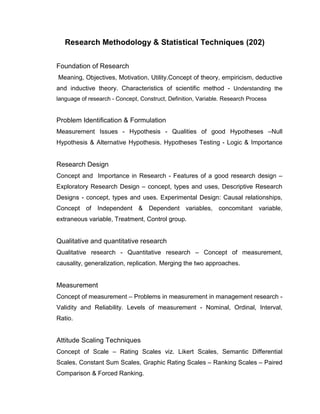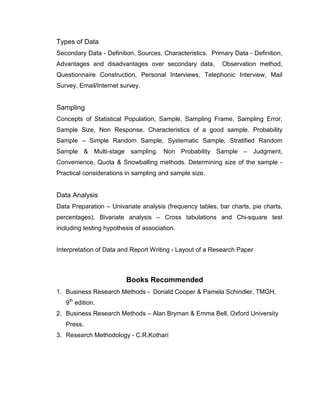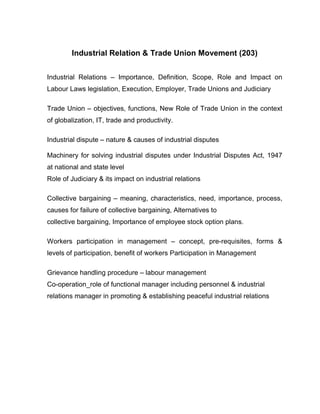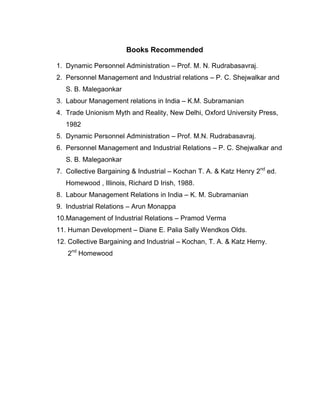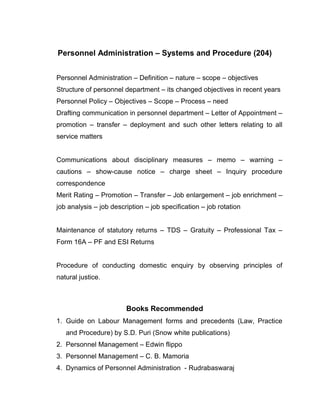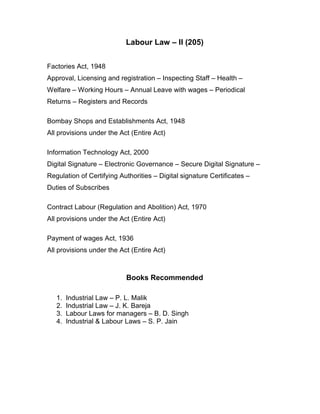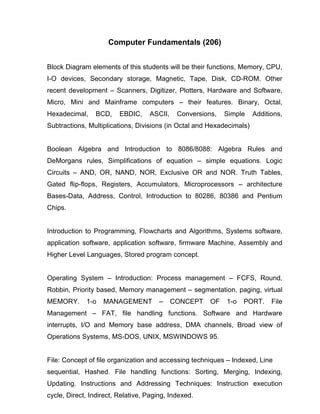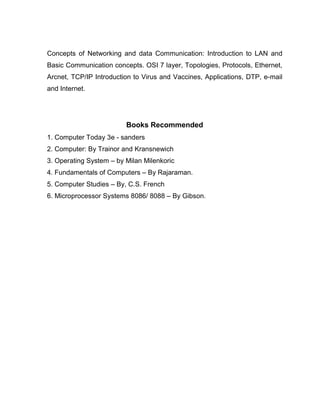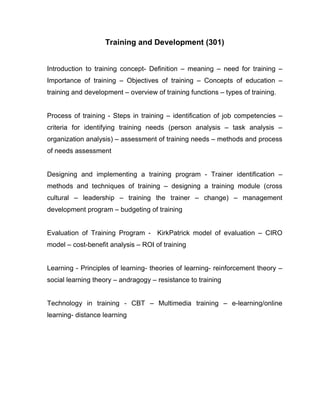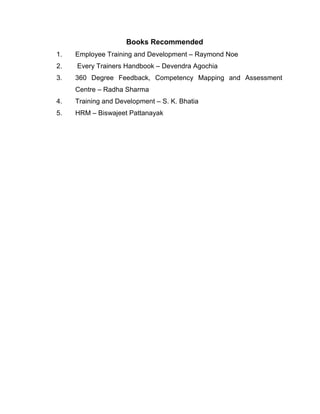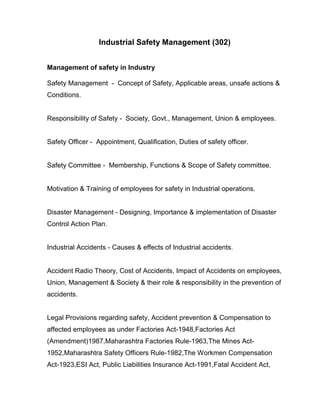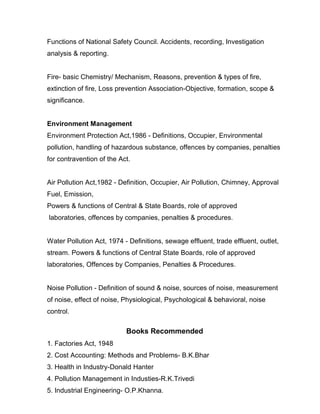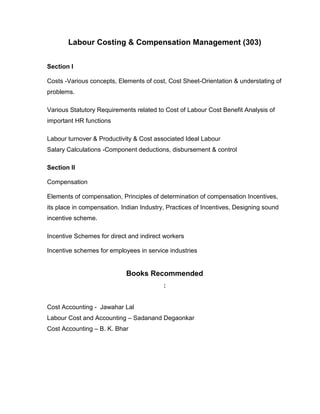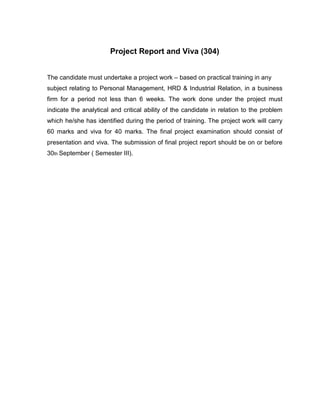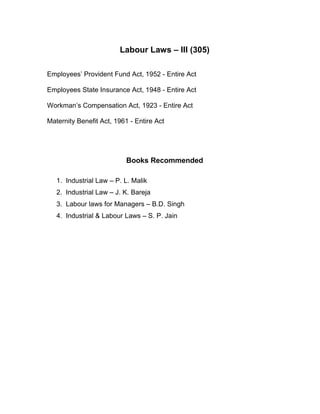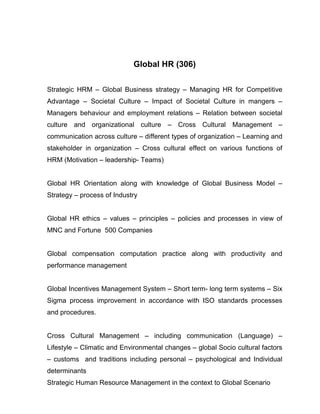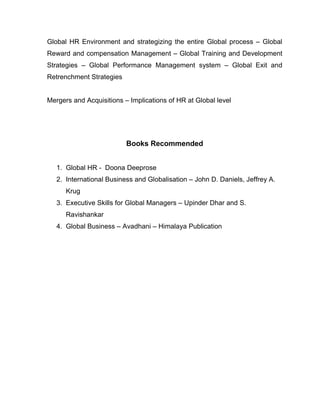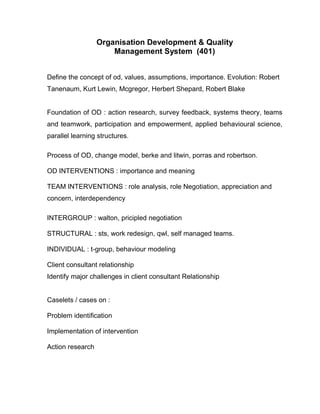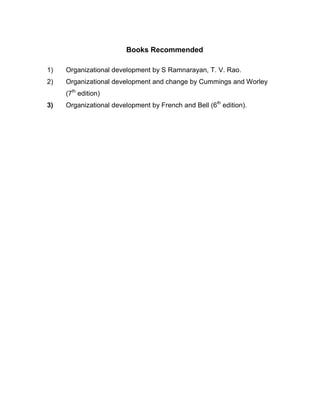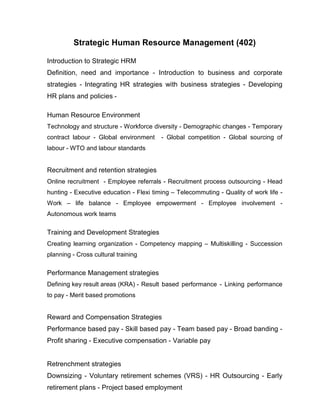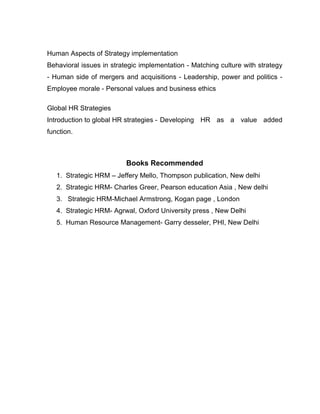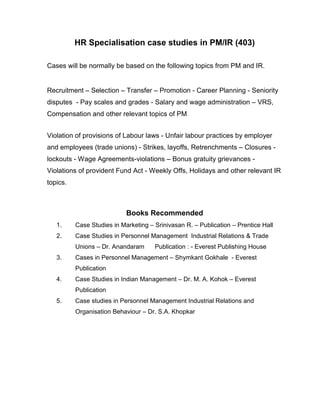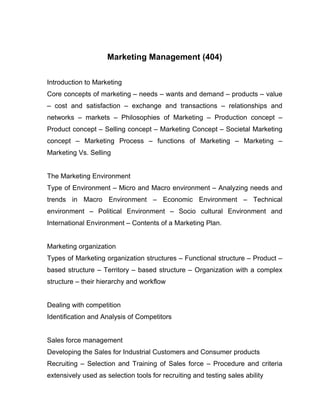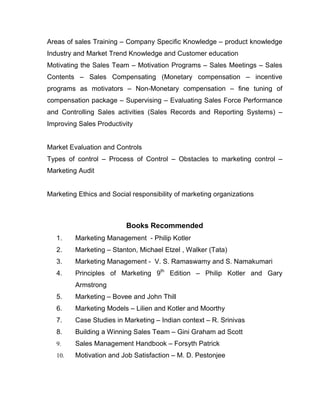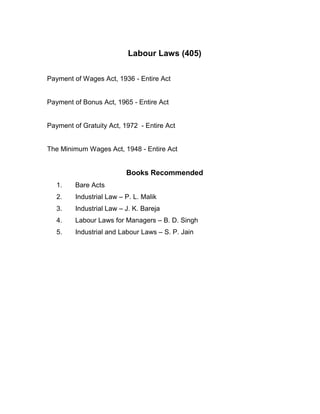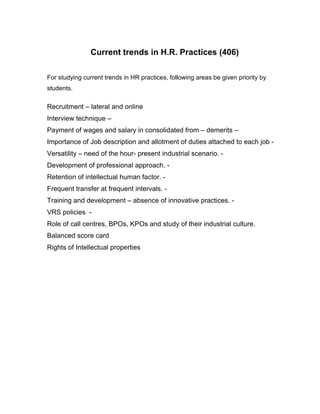The syllabus is divided into two parts - M.P.M. Part I from the academic year 2008-2009 and M.P.M. Part II from the academic year 2009-2010. It details the eligibility criteria, examination scheme, subjects to be covered, teaching scheme, and other administrative guidelines for the course.
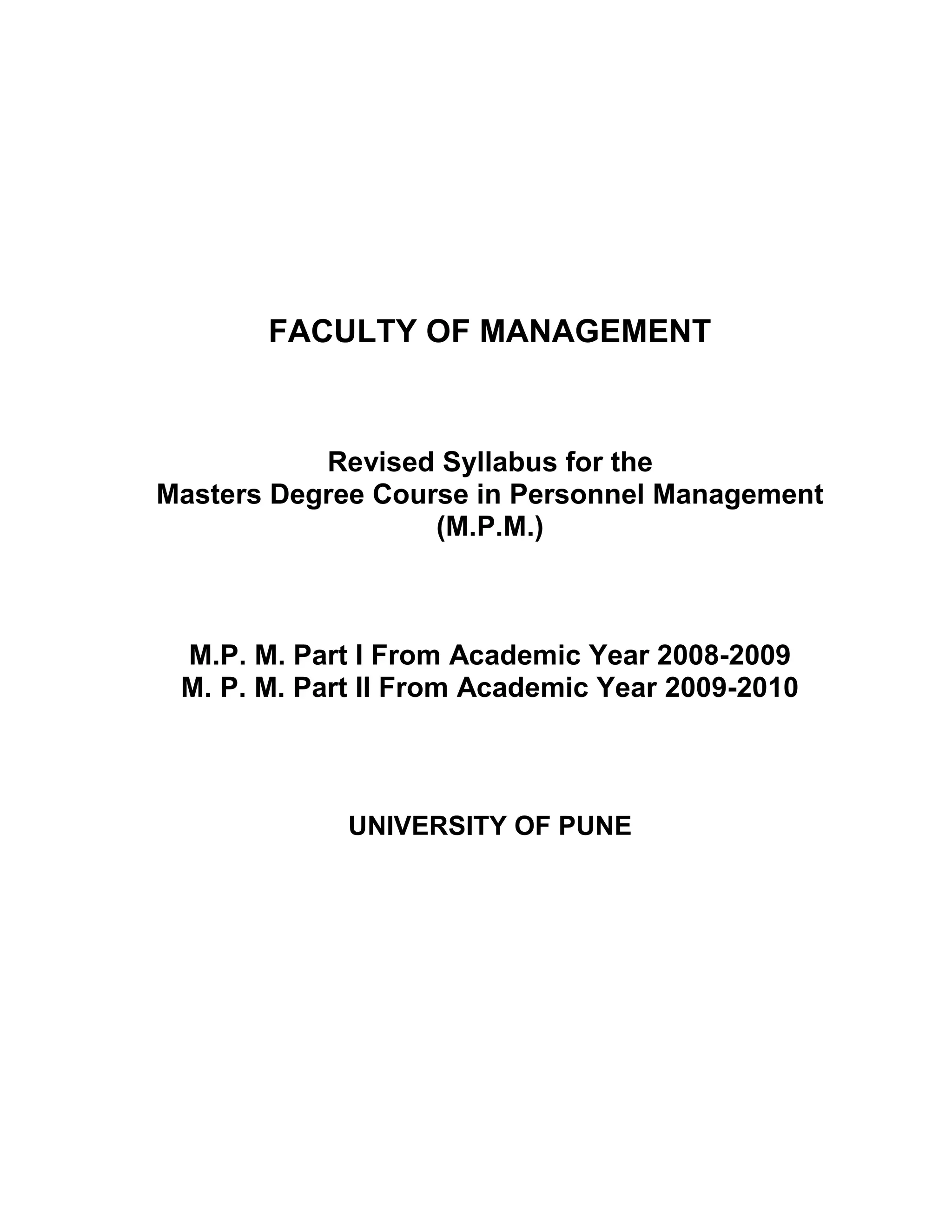
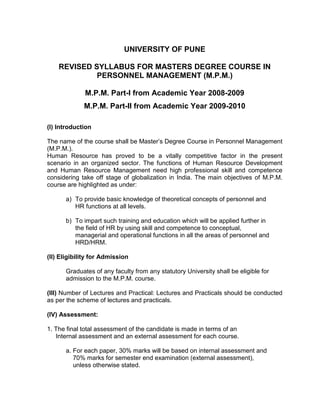
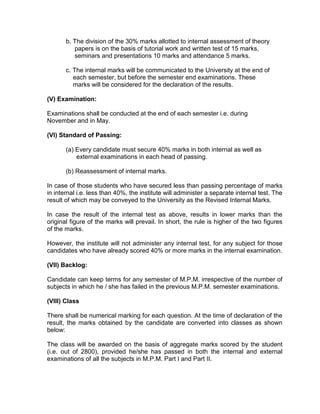
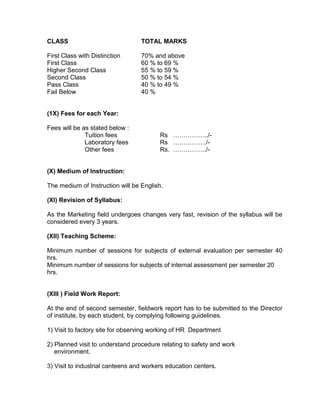
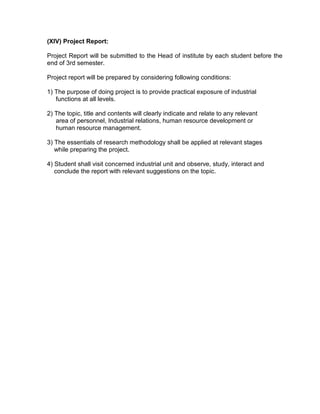
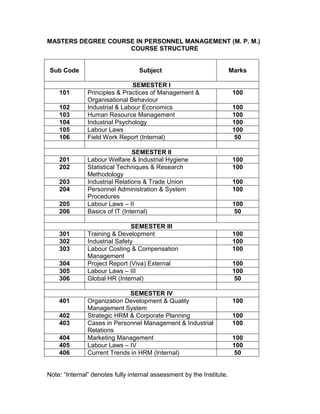
![Principles and Practices of Management and
Organisational Behaviour (101)
Principles and Practices of Management
Basic Concepts of Management, Definition, Need and Scope, Different
schools of management – Behavioral Scientific System, Contingency
Management theories by - F. W. Taylor, Henry Fayol and Elton Mayo
Managerial Skill and Functions - Level of Management- Functions of
Management -
A] Planning – Definition, Nature, Importance, Steps, Limitations, MBO
B] Organising - Definition, Nature, Importance, Principles,
Centralization – decentralization Organization structures - Line &
Staff – functions, product, geographical, customer, virtual - boundary
C] Leading – Nature and Scope
D] Staffing – Definition, Nature, Importance, steps
E] Decision making – Definition, Nature, Importance steps
F] Controlling – Definition, Nature, Importance, Steps, Techniques
Organization Behaviour
Organisation Behaviour - Definition, Scope, Importance, Concepts of
Organisation Behaviour – Models of OB – Autocratic – Collegial,
Custodial Supportive
Motivation – Definition, Importance
A] Motive – characteristics Types – primary & secondary
B] Theories of motivation – Mc Gregor – A.H. Maslow, Herzberg
C] Overview of moral –](https://image.slidesharecdn.com/10-mpmsyllabus-111114042938-phpapp02/85/10-mpm-syllabus-7-320.jpg)
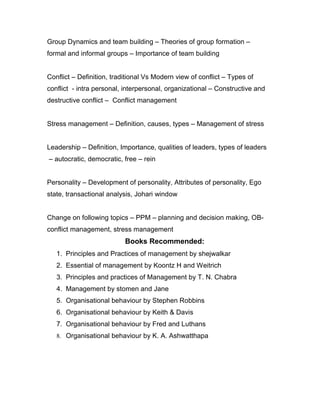
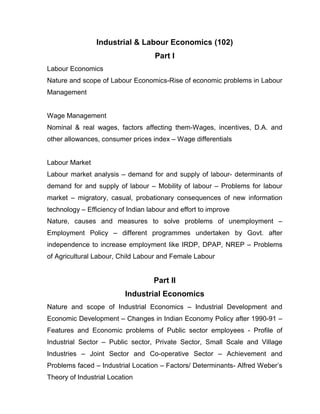
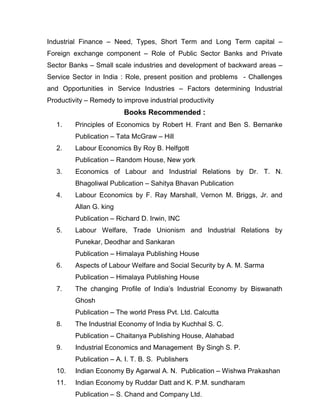
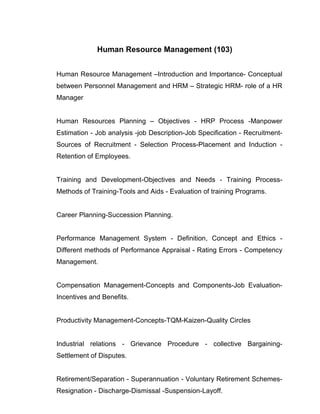
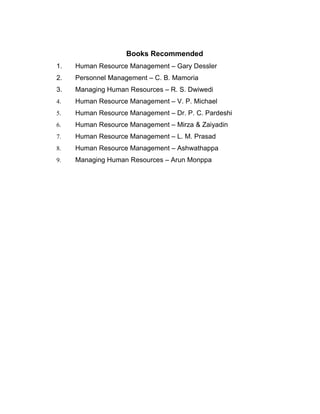
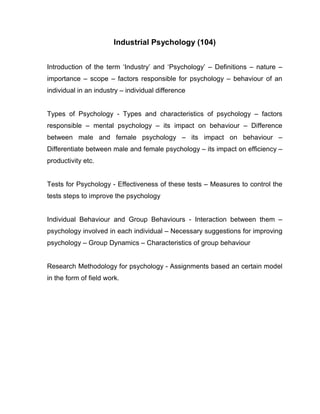
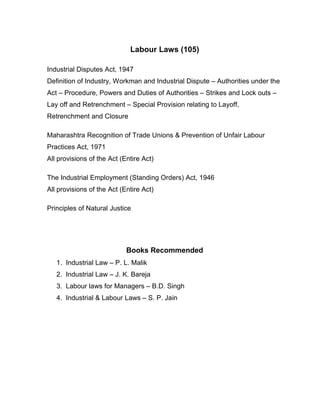
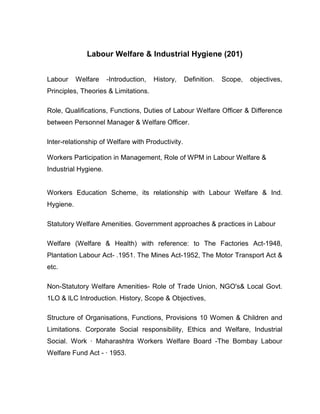
![Impact of industrialization in developing country like lndia -.Pollution,
Urbanization. Social. Health.
Relationship between Mental, Physical, Social & Industrial Health. Discussion
of two cases (Problems) related to L W&IH.
Books Recommended
1] Labour welfare, Trade unionism & Industrial relations - S..D. Punekar
2] Aspects of Labour Welfare & Social Security - A. M. Sarma
3] Labour Problems & Social welfare - R.C. Saxena
4] Economics of Labour & Worker's Participation in Mgmt. - T. N.
Bhagoliwal
5] Labour Economics and Social welfare - Dr. B.P.Tyagi](https://image.slidesharecdn.com/10-mpmsyllabus-111114042938-phpapp02/85/10-mpm-syllabus-16-320.jpg)
